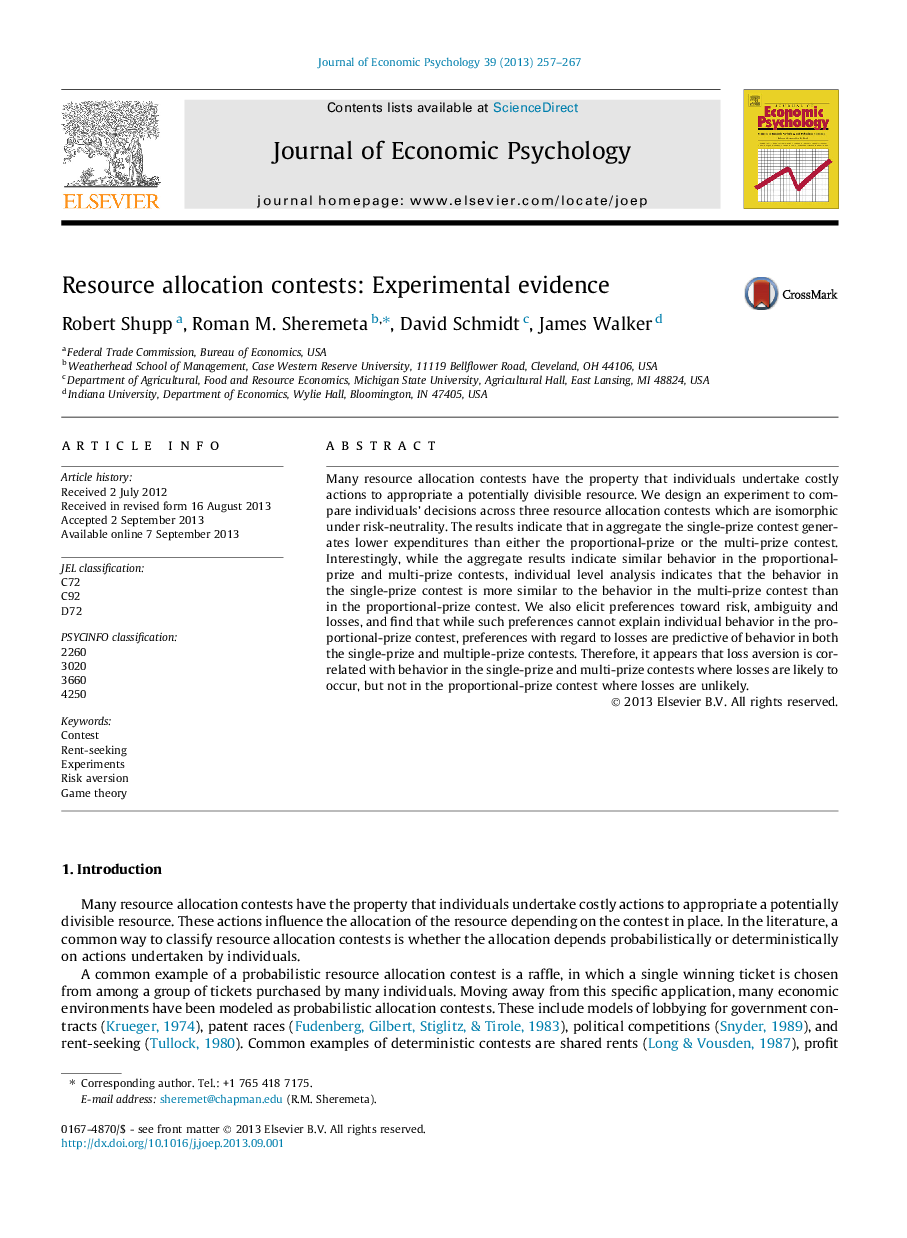| Article ID | Journal | Published Year | Pages | File Type |
|---|---|---|---|---|
| 7244960 | Journal of Economic Psychology | 2013 | 11 Pages |
Abstract
Many resource allocation contests have the property that individuals undertake costly actions to appropriate a potentially divisible resource. We design an experiment to compare individuals' decisions across three resource allocation contests which are isomorphic under risk-neutrality. The results indicate that in aggregate the single-prize contest generates lower expenditures than either the proportional-prize or the multi-prize contest. Interestingly, while the aggregate results indicate similar behavior in the proportional-prize and multi-prize contests, individual level analysis indicates that the behavior in the single-prize contest is more similar to the behavior in the multi-prize contest than in the proportional-prize contest. We also elicit preferences toward risk, ambiguity and losses, and find that while such preferences cannot explain individual behavior in the proportional-prize contest, preferences with regard to losses are predictive of behavior in both the single-prize and multiple-prize contests. Therefore, it appears that loss aversion is correlated with behavior in the single-prize and multi-prize contests where losses are likely to occur, but not in the proportional-prize contest where losses are unlikely.
Related Topics
Social Sciences and Humanities
Business, Management and Accounting
Marketing
Authors
Robert Shupp, Roman M. Sheremeta, David Schmidt, James Walker,
